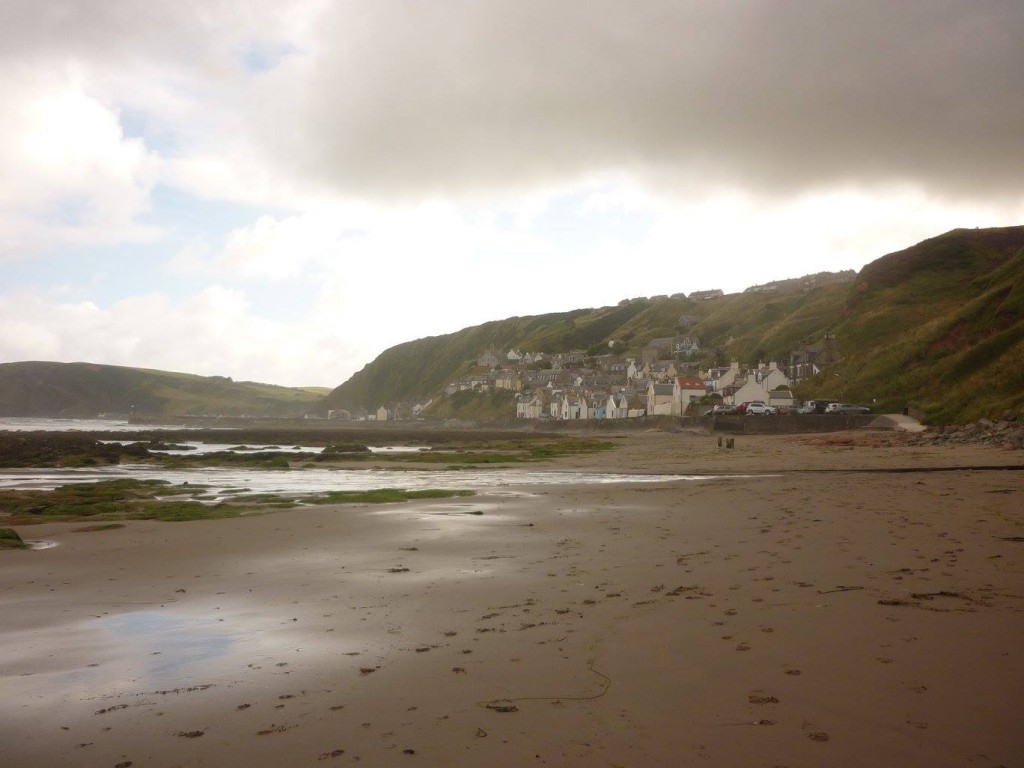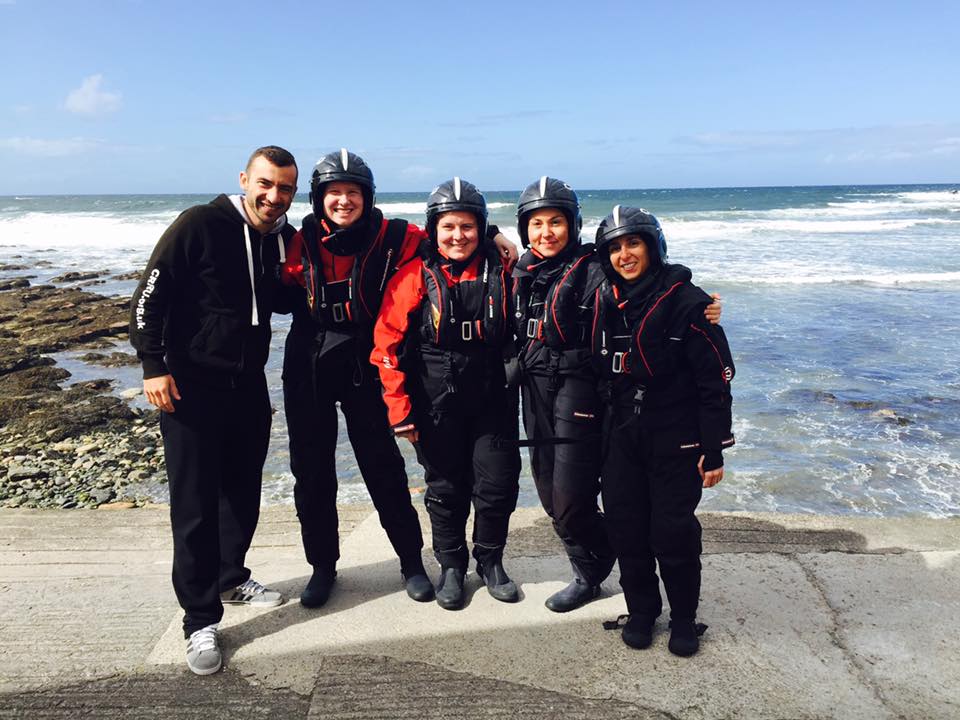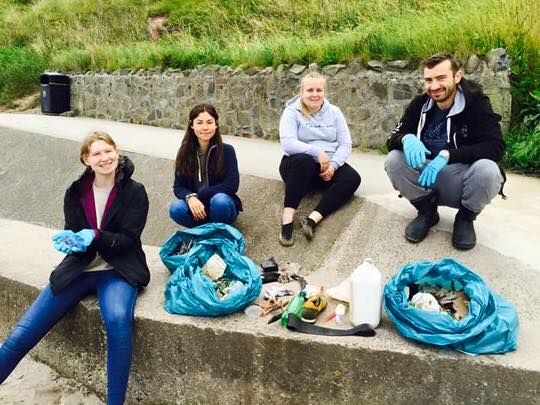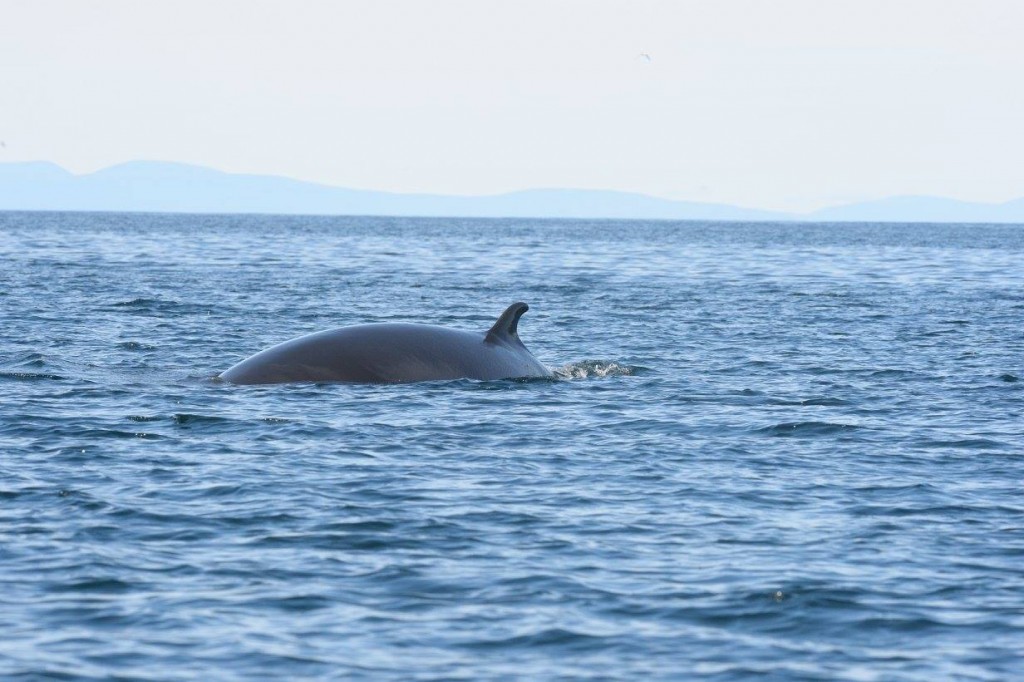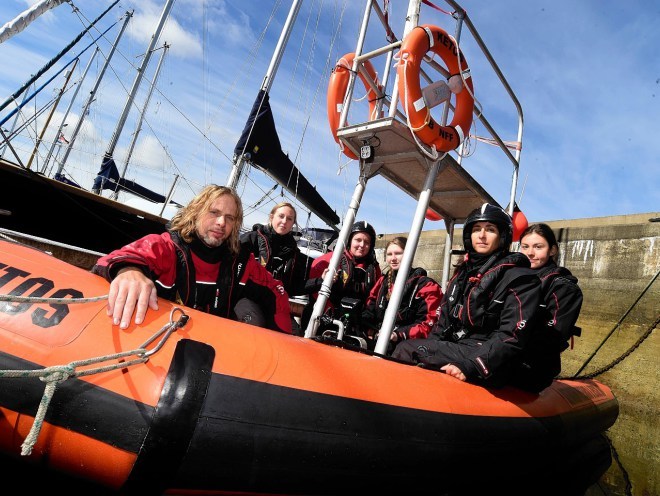Marine Life & Conservation
Cetaceans and conservation: My summer with the CRRU
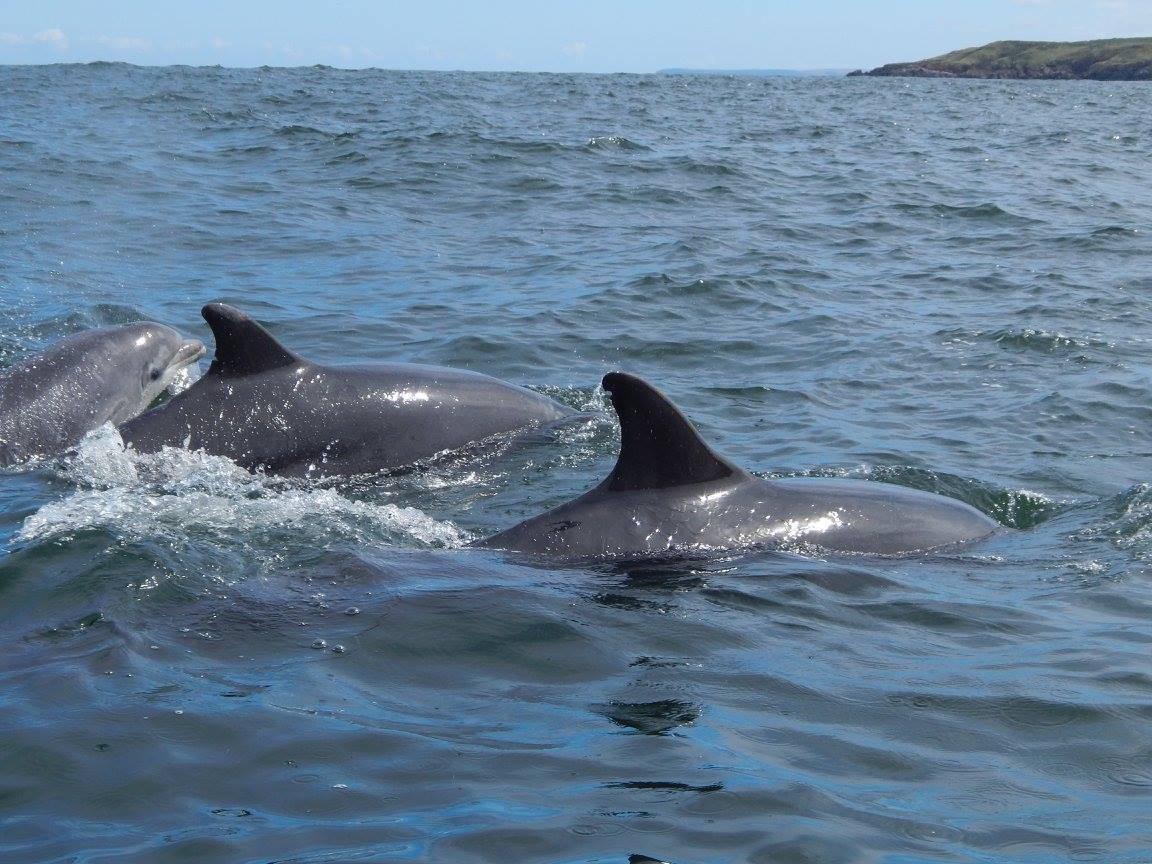
Summer breaks are the opportunity for people to explore new areas and to relax in the sunshine. Mine however took a different angle, spending it in a small village in the north of Scotland. The north east Scottish coastline has a high biodiversity of marine mammals, and provides the perfect setting for innovative work in marine conservation.
The Banff-based CRRU (Cetacean Research & Rescue Unit) was set up in 1997, growing in size thanks to its unstoppable group of dedicated volunteers. Come rain or shine, they are working to improve our knowledge of cetaceans (whales, dolphins and porpoises) in our UK waters, from the ever-popular bottlenose dolphin to the lesser known minke whale.
So where do I start? My summer with the CRRU was a completely eye opening experience. It was my first volunteer experience in this field as a research intern, and I saw more species than I could possibly list; rare birds and marine mammals which people only dream of seeing. But I also felt like I made a difference. Even in my short time there. Not a single day there was ever the same, allowing me to develop different skills and learn different tactics for conservation.
The first few days I was there, a lot of our time was used to learn. Learning about the charity, how to collect data, about the species we would be working with and why what is being done is so important. This allowed the research teams to bond and learn how to work together quickly and effectively so when we finally found the animals we could complete the necessary data forms quickly, thereby causing minimum disruption to the study animals.
The rest of my time was spent between conservation, fund-raising, research and of course having fun! We would spend our days doing a variety of different activities, from beach cleans to watching gannet colonies from the cliff tops.
The charity has an unfathomable amount of publications on the work that they do, and their papers, research and data are used globally for the protection of the species studied. The charity’s science team works tirelessly throughout the summer in Scotland to collect data to improve current knowledge of the whales and dolphins of the Moray Firth. So far, their work has been invaluable to the protection of minke whales in north-east coastal waters resulting in recommendation for the first ever MPA (Marine Protected Area) for these coastal cetaceans in the UK.
Due to being a relatively small charity, the CRRU has limited funding, however. Currently all of their work is being carried-out from one of two small, rigid inflatable boats, but ongoing fundraising is being conducted for a new, much larger vessel which would allow the charity to continue its long-term monitoring studies. The current boats, first used in 2000, are becoming too old and are struggling to keep up with the increasing workload. The research team has a wide variety of work they are attempting to do from the boats when they meet their study species. Currently they are attempting to get biopsies from minke whales to allow them to learn more about what the whales are eating and evaluate the levels of pollutants in their bodies and the surrounding marine environment. They also do behavioural studies and attempt to do temporary tagging of whales so they can study their movements and diving behaviour, which is all very relevant to abundance estimates currently used to designate unfavourable whaling quotas to neighbouring whaling countries such as Norway and Iceland, that sadly still harvest these whales. The new boat will also be central to the CRRU’s emergency response teams for live-stranded whales and dolphins across Scotland. The larger boat will allow the rescue teams to carry more equipment and operate in often inclement and unfavourable sea conditions.
While I was with the CRRU, I was able to gain a qualification in Marine Mammal Rescue, which means I can now act as a volunteer Marine Mammal Medic, assisting in ongoing UK rescue efforts for sick or stranded whales and dolphins which inevitably get into trouble around the UK coastline each year. The course, which is made up of both practical and theory based sessions is run by the charity as a free service to interested volunteers. So far they have trained over 1,600 people in Scotland. They don’t do this work for the research but to look after the welfare of the animals. The CRRU have a 24/7 line for people to call if they find a stranded marine animal, and they operate the only dedicated specialist response team for whales, dolphins and porpoises in Scotland. For more information about the charity’s rescue efforts, Check out their website here.
Don’t just take my word for it – to me and many people who have joined the CRRU as a volunteer intern, this is an amazing opportunity with fantastic people who know so much in this field. So why don’t you try it out too? Summer placements are now being accepted for 2017 – click here to find out more.
If you would like to donate towards the new boat, you can also help by clicking on their fundraising page here.
Marine Life & Conservation
Paul Watson Released as Denmark Blocks Japan’s Extradition Bid

Renowned anti-whaling activist Paul Watson has been released from custody in Greenland after spending five months in detention. Denmark’s Justice Ministry rejected Japan’s request for his extradition, citing insufficient guarantees that his time already served in custody would be credited against any potential sentence.
The 74-year-old Canadian-American was arrested on July 21 in Nuuk, Greenland’s capital, when his ship docked to refuel. His arrest was based on a 2012 Japanese warrant related to a 2010 encounter in Antarctic waters. Japan alleged Watson obstructed operations and caused damage to a whaling research ship during efforts to disrupt illegal whaling. Watson has consistently denied these claims, maintaining his commitment to marine conservation.
Denmark, which oversees extradition matters for Greenland, concluded that while the legal conditions for extradition were met, the lack of assurances from Japan regarding time-served credit made extradition untenable.
In a video shared by his foundation, Watson expressed gratitude and relief, saying, “After five months, it’s good to be out… and good to know they’re not sending me to Japan.” He added that the most difficult part of his time in custody was being separated from his two young sons.
Watson is a pioneering figure in marine conservation, known for founding the Captain Paul Watson Foundation in 2022 after decades of activism with the Sea Shepherd Conservation Society. His bold efforts to defend marine life have earned him widespread support, including from celebrities and conservationists. His work has also been featured in the acclaimed reality TV series Whale Wars.
Watson’s lawyer, Jonas Christoffersen, praised the decision, stating, “We are happy and relieved that Paul Watson is now free.” He added that Watson is eager to reunite with his family and continue his vital work.
The arrest occurred while Watson’s vessel, the M/Y John Paul DeJoria, was en route to the North Pacific with a team of 26 volunteers to intercept a Japanese whaling ship. His foundation described the arrest as politically motivated and emphasized that Watson’s actions were focused on ending illegal whaling practices.
Japan resumed commercial whaling in 2019 after leaving the International Whaling Commission, asserting that whale meat is a cultural tradition. Conservationists, however, continue to challenge these practices, highlighting their impact on marine ecosystems.
Despite the challenges, Watson remains steadfast in his mission to protect marine life and bring attention to whaling practices. His dedication to ocean conservation has made him a globally respected advocate for the environment.
Marine Life & Conservation
12 Days of Zero-Waste Fish-mas

This holiday period, the Marine Conservation Society, the UK’s leading ocean membership charity, invites you to make some simple changes to eating fish this Christmas to help our seas.
Dr Kenneth Bodles, Head of Fisheries and Aquaculture at the Marine Conservation Society, said, “During the festive season, our consumption increases, but so does waste. Sustainability isn’t just about where food comes from – it’s also about how you use it. By reducing waste and making the most out of your seafood, you’re not only taking steps to be more ocean-friendly, but can also help to cut costs during what is often one of the most expensive times of the year”.
The Marine Conservation Society has compiled twelve tips on how to consume seafood sustainably with zero-waste this Christmas:
Buy whole fish instead of fillets
Instead of fillets, consider buying whole fish such as salmon, hake, or lemon sole. By adopting a “nose to tail” approach with cooking, whole-baked fish not only feeds a crowd, but also helps to minimise waste and maximise sustainability by using up every part of the animal, including bones, skin, and fat.
Make fish stock
Leftover fish bones or shells can be put to good use by boiling them to make a nourishing fish stock or bisque. This can be frozen and preserved for later use and makes for a flavourful base in a soup.
Make your own fish pâté
Avoid waste by turning leftover fish, such as smoked mackerel or salmon, into a delicious pâté by blending with cream cheese and lemon. Perfect when paired with crackers.
The sustainability of salmon and mackerel varies depending on where and how it is caught or farmed. For more information on green-rated options, check the charity’s Good Fish Guide.
Buy frozen
By purchasing seafood that is frozen or vacuum-packed, this helps to reduce waste by extending the shelf life of your food.
Fish pie
If you’re wondering what to do with leftover cooked fish, why not opt for a classic fish pie with mashed potatoes, leeks, and a cheesy sauce? A sure crowd pleaser on Boxing Day.
Use the head
Don’t forget the fish head! The meat is incredibly tender and flavourful. The charity recommends a cod’s head curry or recreating Fallow’s renowned cod’s head in siracha butter.
By stretching your ingredients further, not only is this a more sustainable way to enjoy seafood, but also cost-effective by repurposing leftovers and cooking creatively.
Boxing Day brunch
Mix leftover kippers or smoked salmon with scrambled eggs for a tasty, zero-waste, Boxing Day brunch.
For best choice, make sure you buy kippers, or herring, from the North Sea and the North Irish Sea.
Zero-waste storage
A top tip from the Marine Conservation Society to avoid waste is freezing fish offcuts to save for future use.
Crisp up the skin
Even leftover fish skin can be turned into a quick savoury snack by crisping it up in an air fryer with a little olive oil and salt.
Anchovies two ways
Leftover anchovies can either be blended with butter to make a delicious anchovy butter or tossed into pasta for a hit of umami flavour.
The charity recommends opting for anchovies caught in the Bay of Biscay for best choice.
Fishcakes
For an easy, zero-waste meal, leftover seafood trimmings can be mixed with mash and fried in breadcrumbs to make fishcakes.
Pickled mussels
Try pickling mussels in 1:1 vinegar and water, with a dash of sugar for a sustainable, zero-waste snack that can be enjoyed well beyond the festive season.
Mussels farmed in the UK are a seafood superhero. Grown using low-impact methods and harvested by hand, they get all the food they need from the sea around them. This makes them one of the most sustainable, ocean-friendly, and cost-effective seafood options.
Players of People’s Postcode Lottery have raised £6.6M towards the Marine Conservation Society’s vital work in making seafood more sustainable.
Laura Chow, Head of Charities at People’s Postcode Lottery, said: “Fish is a festive favourite for many, but making sustainable choices when it comes to how we buy and eat seafood makes all the difference for our ocean. Support from players of People’s Postcode Lottery has helped the Marine Conservation Society further its sustainable seafood work, so that we can all enjoy healthier, better protected seas.”
The Marine Conservation Society encourages you to make sustainable seafood choices a year-round habit, not just for Christmas. To check how sustainable the seafood on your plate is, you can visit the charity’s Good Fish Guide. The Guide helps consumers and businesses identify the most sustainable seafood using a simple traffic light system, based on where and how species are caught or farmed. Green is the best choice, amber means improvements are needed, and red indicates fish to avoid buying.
Zero-waste gift idea
Why not embrace a zero-waste Christmas by gifting a membership to support marine conservation? It’s a meaningful, low-waste gift that helps protect our ocean for generations to come. Memberships start from as little as £5 a month – the price of a sandwich and drink from your local coffee shop.
Find the latest sustainable seafood advice for wild-caught and farmed seafood on the Good Fish Guide, downloadable to your phone from www.mcsuk.org/goodfishguide.
-

 News2 months ago
News2 months agoIconic SS United States to become the World’s Largest Artificial Reef
-

 News3 months ago
News3 months agoBook Review – 52 Assignments: Underwater Photography
-

 Gear News3 months ago
Gear News3 months agoDYNAMICNORD – New German diving brand enters the British market
-

 News3 months ago
News3 months agoExploring Cenote El Pit: A Diver’s Dream
-

 Gear News3 months ago
Gear News3 months agoTry BARE drysuits (and maybe even win one!) this Friday with Sea & Sea at North West Dive Fest
-

 Marine Life & Conservation3 months ago
Marine Life & Conservation3 months agoBook Review: Coral Triangle Cameos
-

 Blogs2 months ago
Blogs2 months agoDive the Egyptian Red Sea this Autumn with Regaldive
-

 News3 months ago
News3 months ago2024 Ocean Art Underwater Photo Competition Announced


